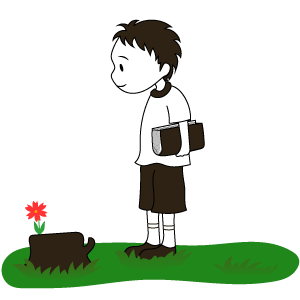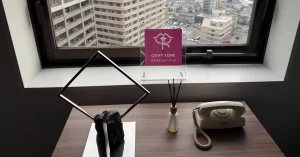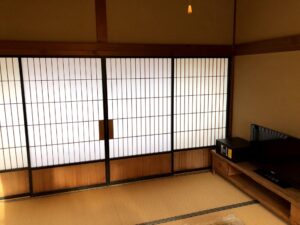In this day and age, those who want to become comedians may be more likely to enter a training school established by an entertainment agency such as Yoshimoto Kogyo or Jinrikisha than to apprentice themselves to a comedian they admire.
Since I, too, am completely of the Downtown generation, I thought that the system of apprenticing to someone to learn their craft was a complete anachronism and would eventually disappear.
However, as I have gotten older, I have come to think that it is okay to have such an old-fashioned system. Of course, I don’t mean the old-fashioned live-in apprenticeship that includes taking care of one’s personal belongings, but a more relaxed approach.
This is not limited to comedy, but a school system has the advantage that there is a proper curriculum, and if you follow it, you can learn in an orderly and efficient manner. In addition, you can make friends and engage in friendly competition.
However, the world of performing arts is a world where you compete on the basis of your individual character and originality. If you are asked if you can develop your originality by taking the same classes as everyone else and hanging out with your friends, this may be the biggest disadvantage.
Not long ago, Ken Shimura passed away. As you know, he was a member of The Drifters. In fact, Ken Shimura started out as a chaperone boy. In other words, he became an apprentice to The Drifters.
According to the memoirs of those around him, it is said that he learned to laugh by observing the actions of the senior members of The Drifters closely and learning firsthand what they usually saw, thought, and how they conceived and expressed their ideas.
This is just a guess, but I think that he was desperately searching for his own existence value, wondering what kind of originality he would bring out when he eventually joined these members. I believe that I would never have been able to do that without being close to them.
In the past, when the world of enka was at its peak, young people who wanted to become singers also lodged at the homes of lyricists and composers and started by taking care of themselves. Hearing this now, one might wonder how this could lead to becoming a singer.
However, just like Shimura Ken, it must have been important for him to be close to one of the creators and breathe in the creative atmosphere where songs are created, so that he could eventually create his own world of songs as a singer. Perhaps they gradually refined their own personalities and expressiveness while taking daily singing lessons.
What would have happened if The Drifters had created a school to train their successors back then? Chosuke Ikariya would teach classes as a teacher. Perhaps there would have been a rush of prospective students. Perhaps even more talented people than Mr. Shimura Ken would have entered the school. However, would there have been a Shimura Kensan as a result? Probably not. Even if he did, I don’t think he would have had the same style.
Individuality is about creating one’s own color. If you are in a group of dark-colored people, you will naturally be dyed darkly, and if you are in a group with only dark-colored people, you will naturally become average in color.
When one becomes an apprentice, one tends to think that one’s individuality will disappear and one will be dyed in the master’s color. In the Fu-shi-kaden book left by Zeami, it is written that a student begins by imitating his master anyway, but eventually rebels and creates his own unique art form to stand on his own. It describes the importance of following this process.
What this shows is that unless you are a genius, the first step in the art is to imitate. And originality, such as individuality, comes naturally only at the end of the process.
Geniuses like Downtown simply did not need to start by imitating. Uccchan Nanchan, who became successful at the same time, was actually apprenticed to master Keiko Utsumi and Yoshie Utsumi. However, as a result, he succeeded with a completely different style of art from that of his master.
Apprenticeship may be an anachronism nowadays, but it may be a surprising way out for those who really want to succeed in a certain field but think they cannot compete with their talent right from the start.
In a sense, joining the salon of someone you admire, which is very popular these days, may be the real apprenticeship of our time. To begin with, the first step of imitation itself is very difficult. Especially in the case of novels and paintings, if you start by copying the style and method of the artist, you will end up being called an “imitator. Of course, the same is true of comedy.
As a prospective artist, you should start out by copying famous works, and I believe that if you imitate them properly, you will be a force to be reckoned with no matter what path you take.
Yes, there is a bad image of the apprentice system, with its strict hierarchy, power harassment, low salary, and long apprenticeship, but these are different issues that need to be resolved. The gut feeling of “I’ll put up with being punched or kicked” is the first thing that should be eradicated.
Therefore, if you have a clear goal of becoming such a person, it might be interesting to become an apprentice of someone who aims to become such a person, even if it is just at a salon or something like that. Kawakami Ryosei, the founder of Dwango, apprenticed himself to Toshio Suzuki, the producer of Ghibli.
See you later.












